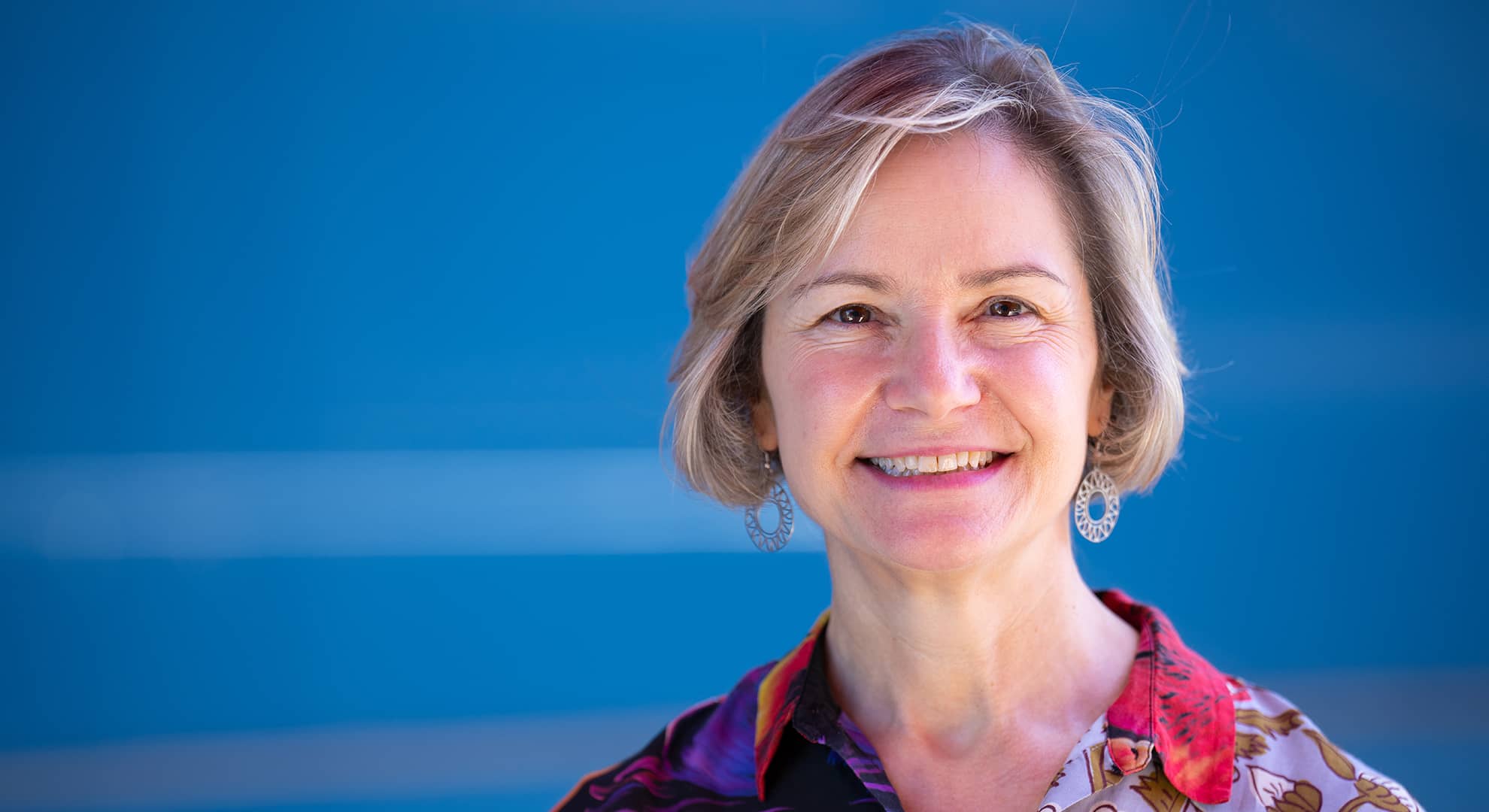Edith Cowan University (ECU) Professor of Anthropology and Sociology, Loretta Baldassar, has been elected a Fellow of the Academy of the Social Sciences in Australia, placing her among Australia's most accomplished social science scholars.
The Academy brings together over 700 of Australia's leading researchers and professionals across the social science disciplines. Fellows are elected by their peers based on a sustained and internationally distinguished contribution to their field.
Professor Baldassar is a Vice-Chancellor's Professorial Research Fellow in ECU's School of Arts and Humanities. She leads ECU's Social Ageing (SAGE) Futures Lab, advancing a social science approach to ageing and care across the life course. Her team's work emphasises social and cultural care, diverse and migrant communities, music and arts engagement, and digital ageing and inclusion.
Professor Baldassar said it was a privilege and honour to be elected to the Australian Academy of Social Sciences and was grateful for the opportunity to shine a light on the work of the research program in Migration, Diversity and Care that she leads at ECU.
"Given the extremely hostile environment globally, and particularly in the US, to both migration and gender diversity issues, it is vitally important that Australia, and ECU, protect and support these research areas," she said.
"Populations around the world are living longer and ageing and wellbeing are critical global issues."
"The recent landmark World Health Organisation report on social connection makes a compelling case that social health must be treated with the same urgency as physical and mental health but also points out that it is under-recognised and under-researched."
Professor Baldassar further explained that there are many research centres across Australia focused on physical and mental health, but relatively few focus on the social and cultural dimensions.
"This focus is critical to wellbeing as we age, particularly in responding to major health challenges, like dementia and loneliness, which lack effective pharmacological treatments," she said.
ECU Deputy Vice-Chancellor (Research) Professor Caroline Finch said the honour highlights the national and international impact of Professor Baldassar's research.
"On behalf of ECU, I warmly congratulate Loretta on this outstanding achievement," Professor Finch said.
"Her election as a Fellow recognises the breadth, depth and real-world impact of her work over decades. Loretta's research has not only advanced theory and knowledge in migration, ageing and transnational family studies, it has also shaped policy conversations and informed community practice both in Australia and internationally."
About Professor Loretta Baldassar
Professor Loretta Baldassar's early work in migration studies critiqued the then established view that migration ends with settlement by conceptualising visits home as part of an ongoing migration process. Published in Visits Home (2001), it pioneered the transnational approach in migration studies and won a Premier's Literary Award. Professor Baldassar's subsequent research is internationally recognised as foundational to the field of transnational families and migration studies, including Families Caring Across Borders (Baldassar, Baldock & Wilding 2007) which introduced the concept of 'transnational caregiving', and Transnational families, migration and the circulation of care (Baldassar & Merla 2014), which introduced the conceptual and methodological framework of care circulation (a double-ended and digital ethnographic approach), contributing an alternative and influential key concept to the care-chains literature.
Professor Baldassar's innovative work on 'digital kinning' and transnational social network analysis inform her more recent work as founding Director of the Social Ageing (SAGE) Futures Lab, where she is building research capacity in the application of social science and arts-based methodologies to medical and health sciences interventional research. This work has been particularly aimed at informing key World Health Organisation (WHO) policy frameworks - Age-friendly; Ageing in Place; as well as the recent landmark report on Social Connection and Social Health - about the critical role (previously overlooked) of distant and virtual supports in ageing well across the life-course. Her work has also informed policy and practice around digital inclusion and diversity.
Professor Baldassar is currently leading a program of research in Migration, Diversity and Care in the School of Arts and Humanities at ECU, which includes the Rainbow Migrant Living Lab led by Dr Lukasz Krzyzowski, and the TRACS Diversity Research Network. This program reflects her commitment to interdisciplinary collaboration to champion research and innovation in social ageing and social health, especially among diverse and migrant populations.
Professor Baldassar's dedication to mentoring early career researchers has made her a pivotal figure in shaping the future of migration and ageing studies. She is one of relatively few social scientists to lead a Medical Research Future Fund randomised controlled trial, called Befriending with Genie (in progress) developing a social support intervention for people living with dementia and their family carers from migrant backgrounds.

 Professor Loretta Baldassar
Professor Loretta Baldassar



